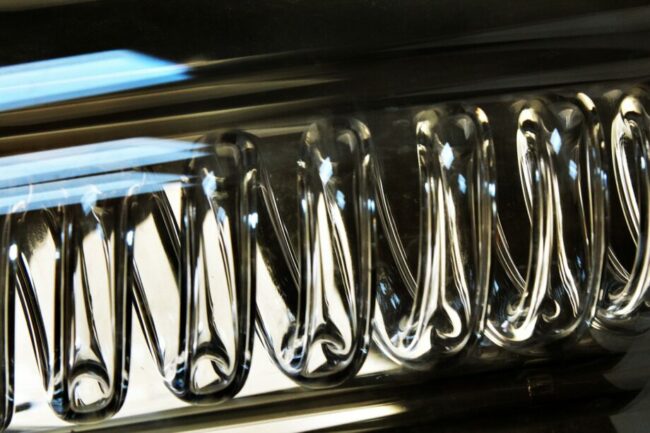Are you pondering the shelf life of distilled water? Whether you’ve stocked up for an emergency, use it in household appliances, or consume it for health benefits, knowing how long it lasts is vital. This in-depth guide explores the longevity, proper storage methods, and various uses of distilled water. Read on to find everything you need to know.
Table Of Contents
−- Does Distilled Water Expire?
- How Long Does Distilled Water Last Once Opened?
- The Impact of Temperature on Distilled Water
- Is Refrigeration Required for Opened Distilled Water?
- Understanding the Nature of Distilled Water
- The Process Behind Distillation
- Best Storage Practices for Distilled Water
- How To Tell If Distilled Water Has Gone Bad
- Uses of Distilled Water
- Is Distilled Water Suitable for Everyone?
- Conclusion
Does Distilled Water Expire?
The straight answer is that distilled water, when stored correctly, can last indefinitely. Unopened bottles or containers of distilled water don’t have an expiration date, making them an excellent choice for long-term storage. If opened, however, its longevity varies based on its intended use and storage conditions. For drinking, it’s advisable to consume opened distilled water within a week to avoid any contamination risks.

| Pantry | |
| Bottled distilled water (unopened) | 5+ years |
| Bottled distilled water (opened for appliance use) | 1+ years |
| Bottled distilled water (opened for drinking) | 4 – 7 days |
| Home-distilled water | 4 – 7 days |
How Long Does Distilled Water Last Once Opened?
The life span of an opened container of distilled water depends heavily on its usage. If you’re planning to drink it, it’s best to consume it within 4-7 days to ensure it remains uncontaminated. For non-consumption purposes, such as using it in household appliances like humidifiers or irons, you can expect it to last up to a year if stored under ideal conditions.
The Impact of Temperature on Distilled Water
Temperature is a critical factor in determining the shelf life of distilled water. Keeping it in a cool, dry place away from direct sunlight is paramount. Exposing distilled water to heat or sunlight, especially if stored in plastic containers, can accelerate the degradation process. Heat can cause the plastic to leach into the water, reducing its purity over time.
Is Refrigeration Required for Opened Distilled Water?
Contrary to popular belief, refrigerating opened distilled water isn’t necessary. While a cold glass of water may be refreshing, distilled water doesn’t require refrigeration to maintain its quality. However, if you decide to refrigerate it, make sure to treat it like any other type of bottled water, ensuring the bottle is sealed well to avoid contamination.
Understanding the Nature of Distilled Water
Distilled water is water that has undergone a purification process, where it’s boiled and then condensed back into a liquid form, free of most contaminants. This makes it a popular choice for drinking, cooking, and even medical applications. However, distilled water is not entirely devoid of all contaminants; trace amounts may still exist but are generally considered negligible.
The Process Behind Distillation
Water from various sources—be it a natural spring, tap, or well—is subject to contamination. Distillation effectively eliminates 99.9% of these, making it one of the purest forms of water. The process involves boiling the water and capturing the steam, which is then cooled and condensed back into liquid, thus leaving most contaminants behind.
Best Storage Practices for Distilled Water
When it comes to storing distilled water, a few principles can help maintain its longevity and purity. Keep it in a cool, dark place, such as a basement or pantry. For long-term storage, use glass or BPA-free plastic containers with tight-fitting lids. This ensures that no contaminants can get in, and it reduces the risk of water-absorbing flavors or odors.
How To Tell If Distilled Water Has Gone Bad
Even though distilled water is highly purified, it’s still susceptible to contamination if not stored properly. Indicators of spoilage include a musty odor, strange taste, or any signs of algae or mold growth. If you notice any of these signs, it’s best to dispose of the water to avoid health risks.
Uses of Distilled Water
Besides drinking, distilled water has a multitude of other uses. It is commonly used in:
- Household appliances: Such as steam irons and humidifiers
- Automotive maintenance: For topping up lead-acid batteries
- Medical applications: Sterilization and cleaning of medical equipment
- Aquariums: Where tap water might be too impure
- Cooking: For recipes that require water free from minerals and impurities
Is Distilled Water Suitable for Everyone?
Although distilled water is a popular choice for many, it’s worth noting that its absence of minerals can be a downside for some. People with specific health conditions may require those essential minerals found in other types of water. Pregnant women and those with certain medical conditions should consult their healthcare provider before making a switch to distilled water for consumption.
Conclusion
In a nutshell, distilled water doesn’t expire, making it an excellent option for long-term storage and various applications. However, like any other type of water, it can become contaminated if not stored correctly. Adhering to proper storage methods and paying attention to the signs of spoilage will ensure that your distilled water remains as pure as possible for an extended period.
There you have it, a comprehensive guide on the shelf life of distilled water. Whether you plan to drink it, use it in household appliances, or keep it as part of an emergency preparedness plan, knowing how to store and identify spoilage can go a long way.

Editorial Staff
Our writers, editors, content managers, and SEO specialist. We all take part in crafting amazing articles. We spend hours ensuring that each article is based on facts, researched, and thorough. You'll never want to click the back button to look for more answers other than here!
